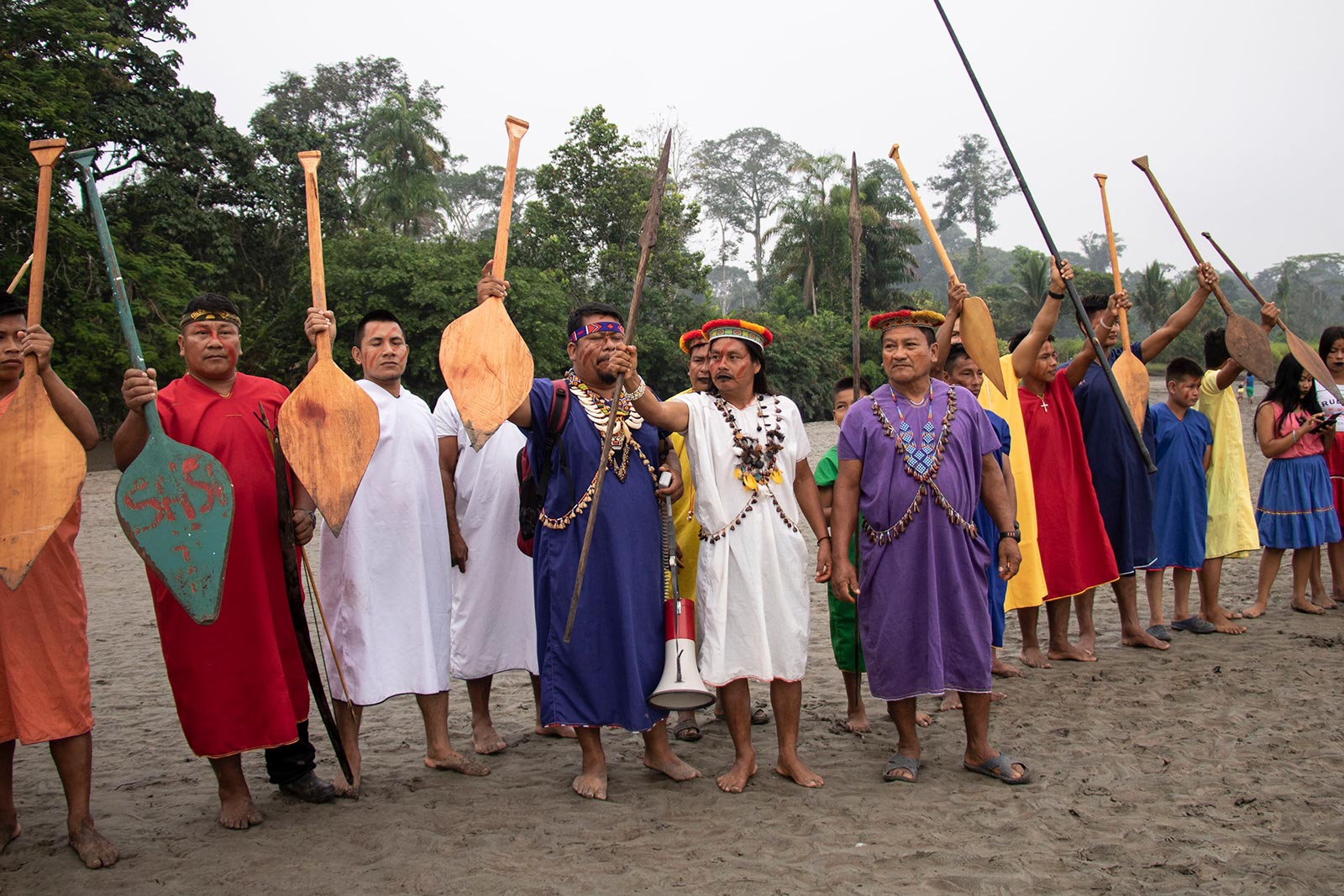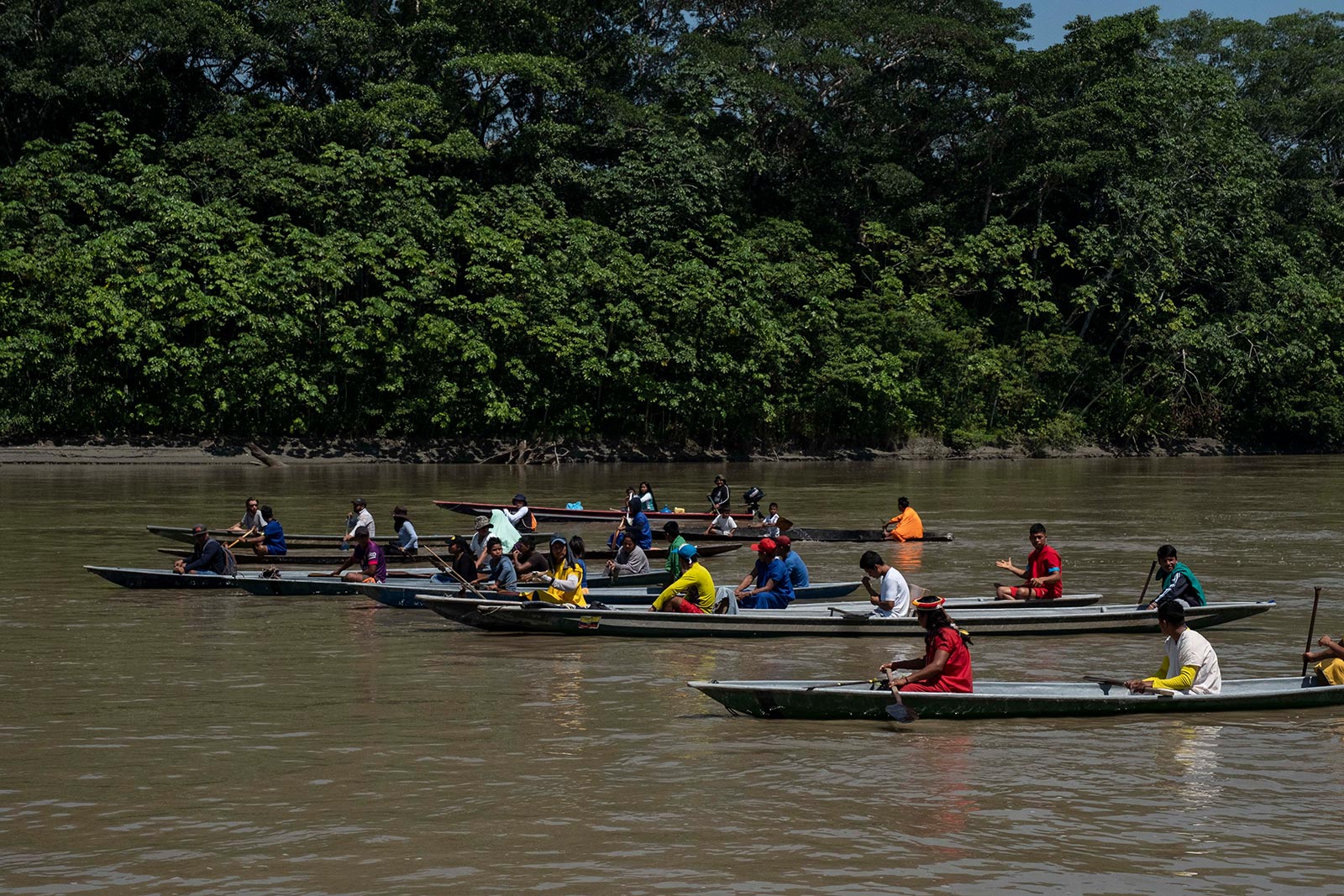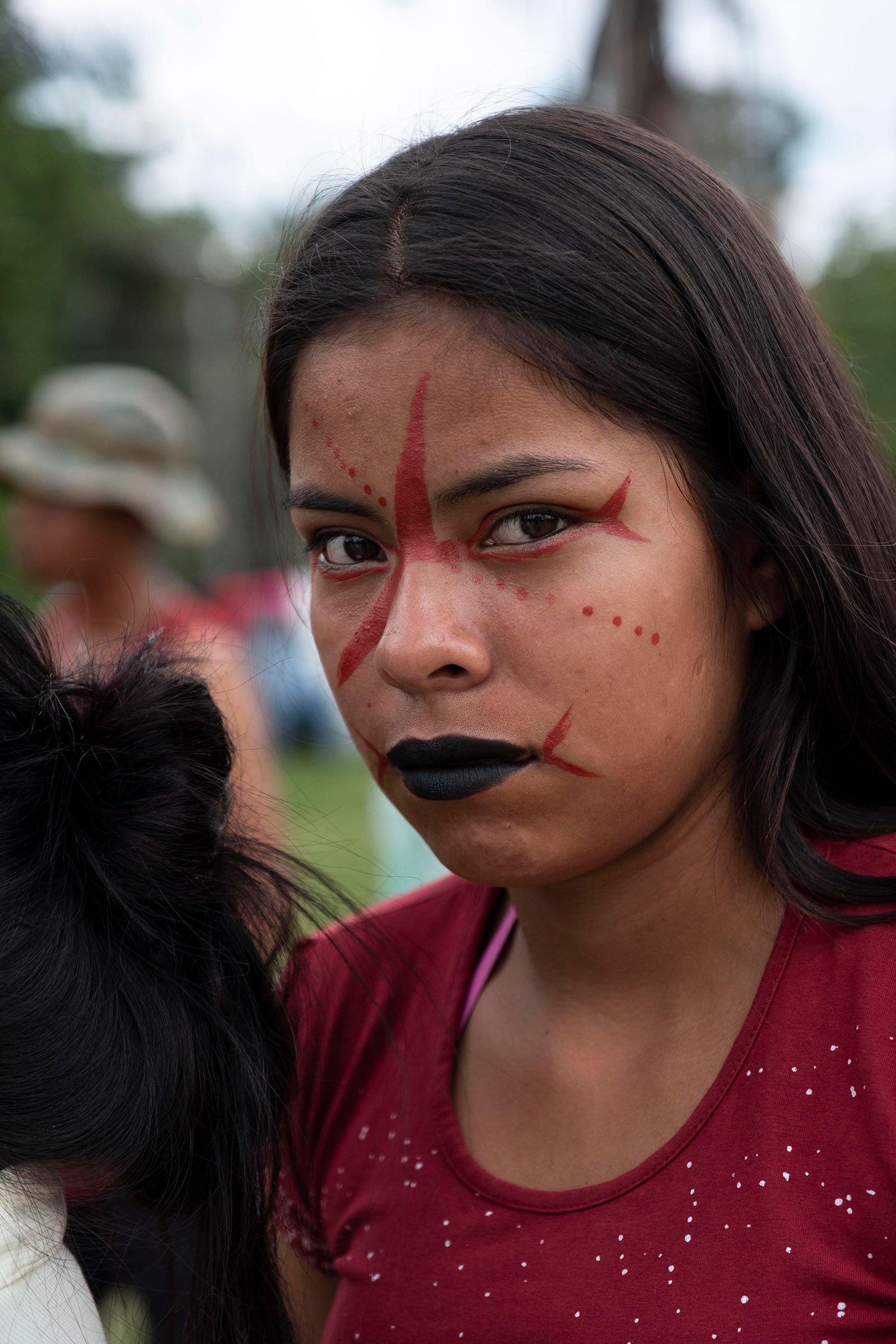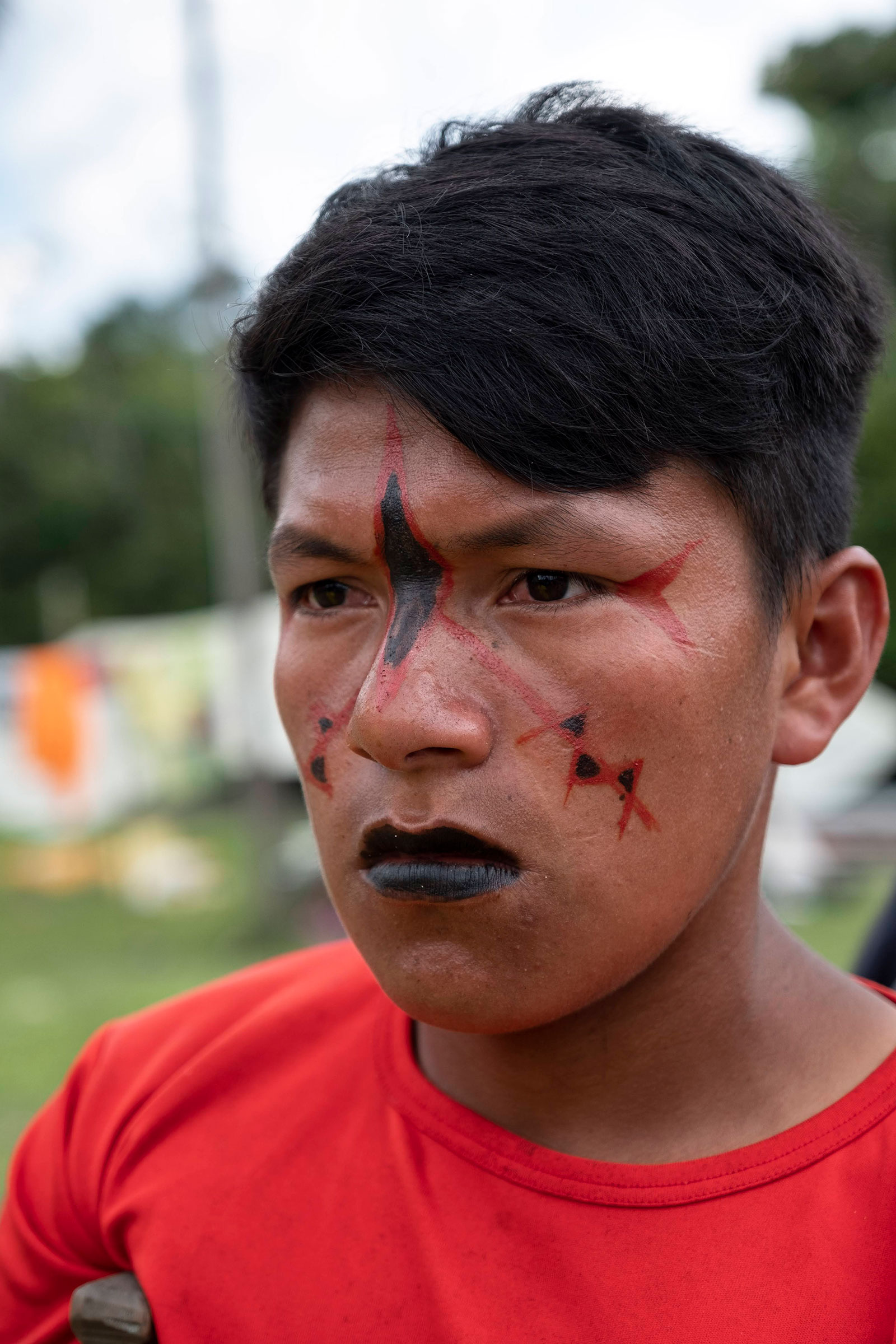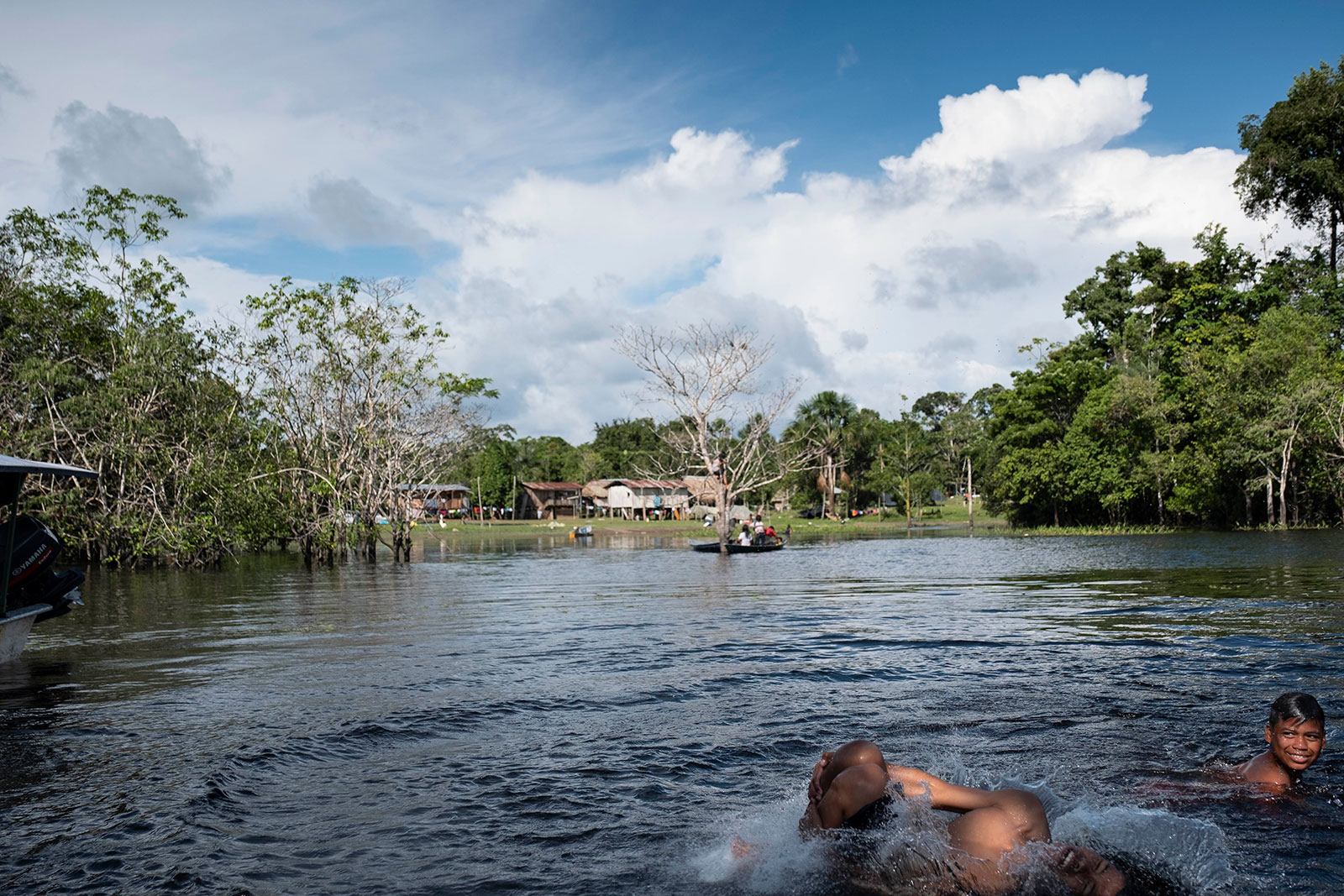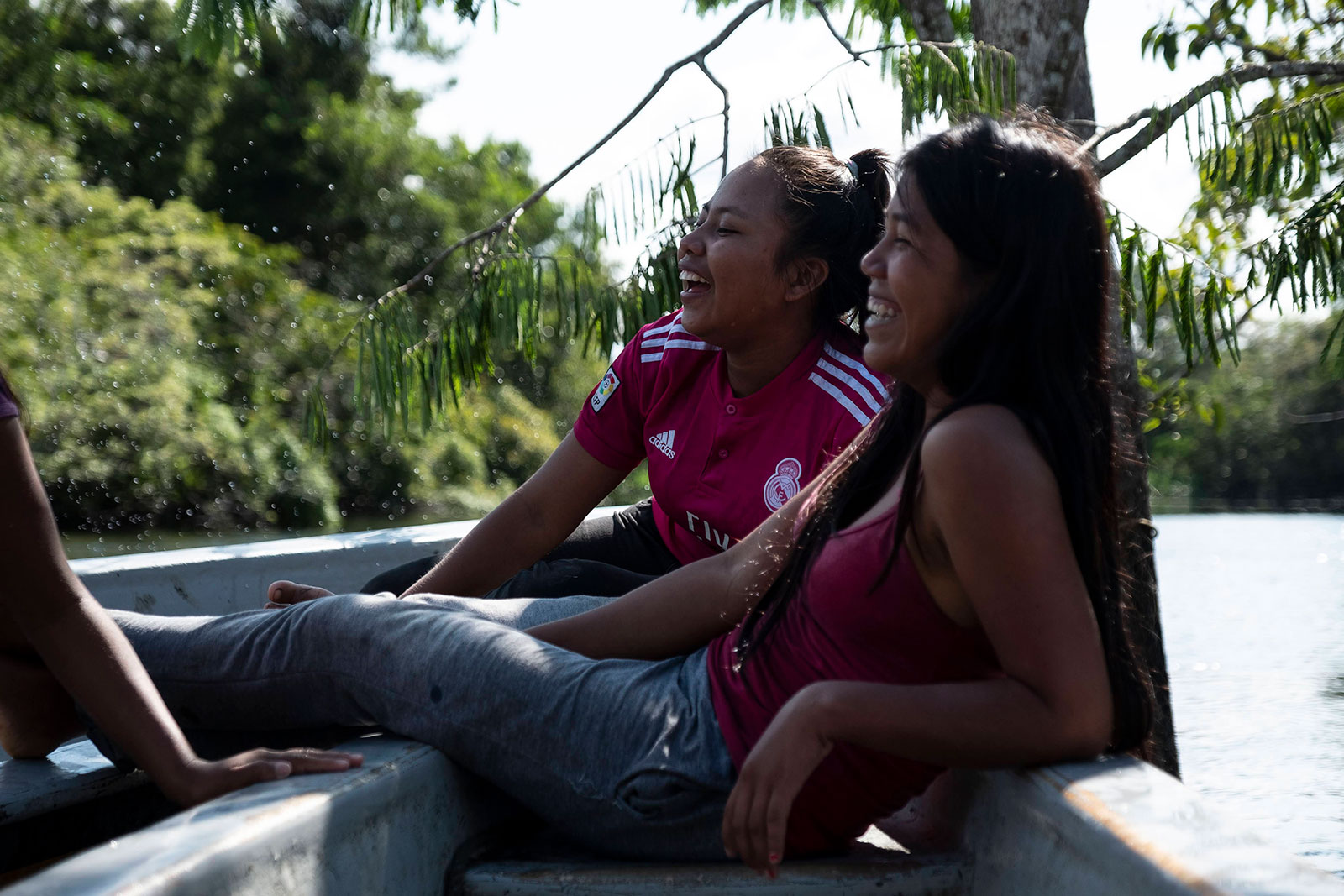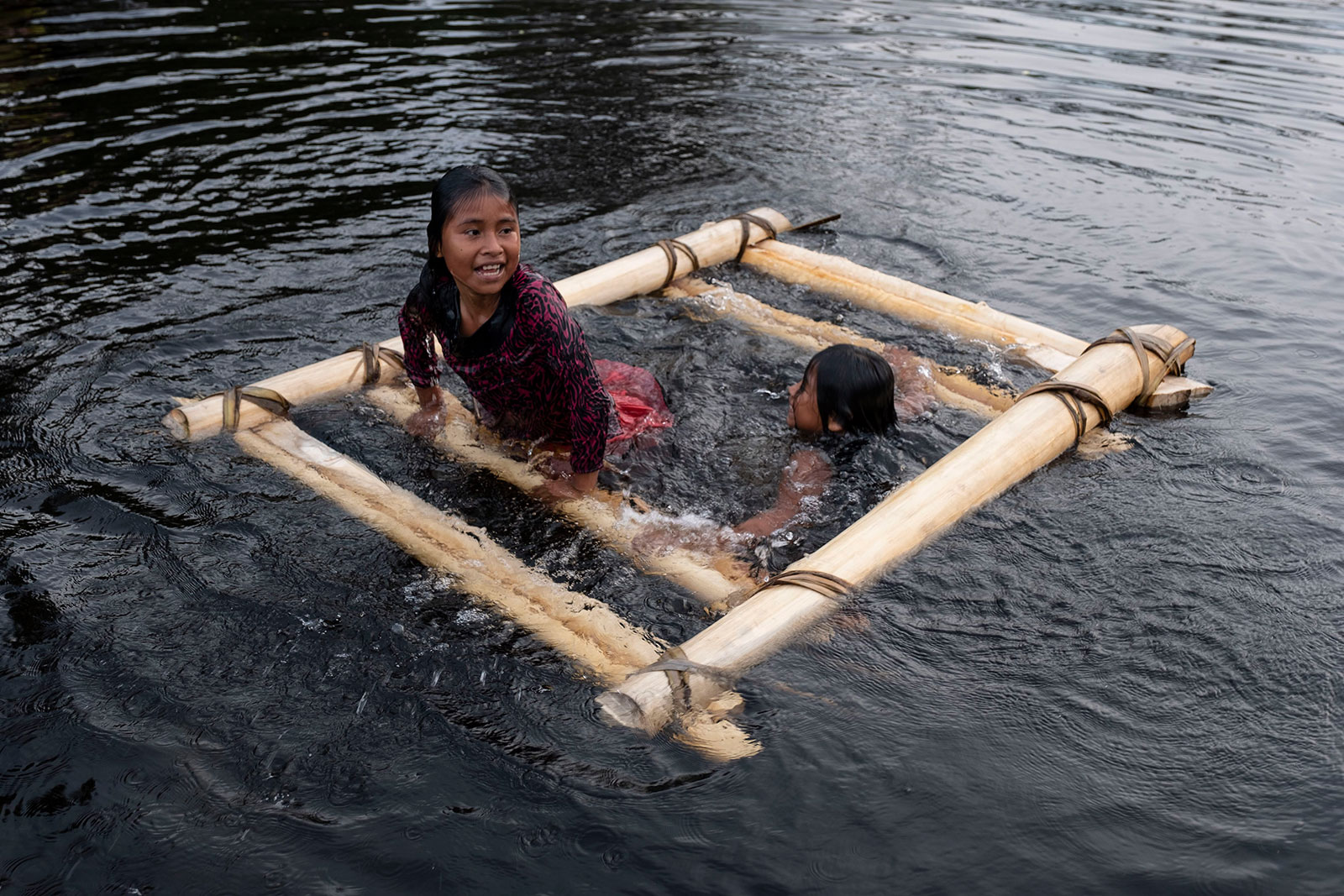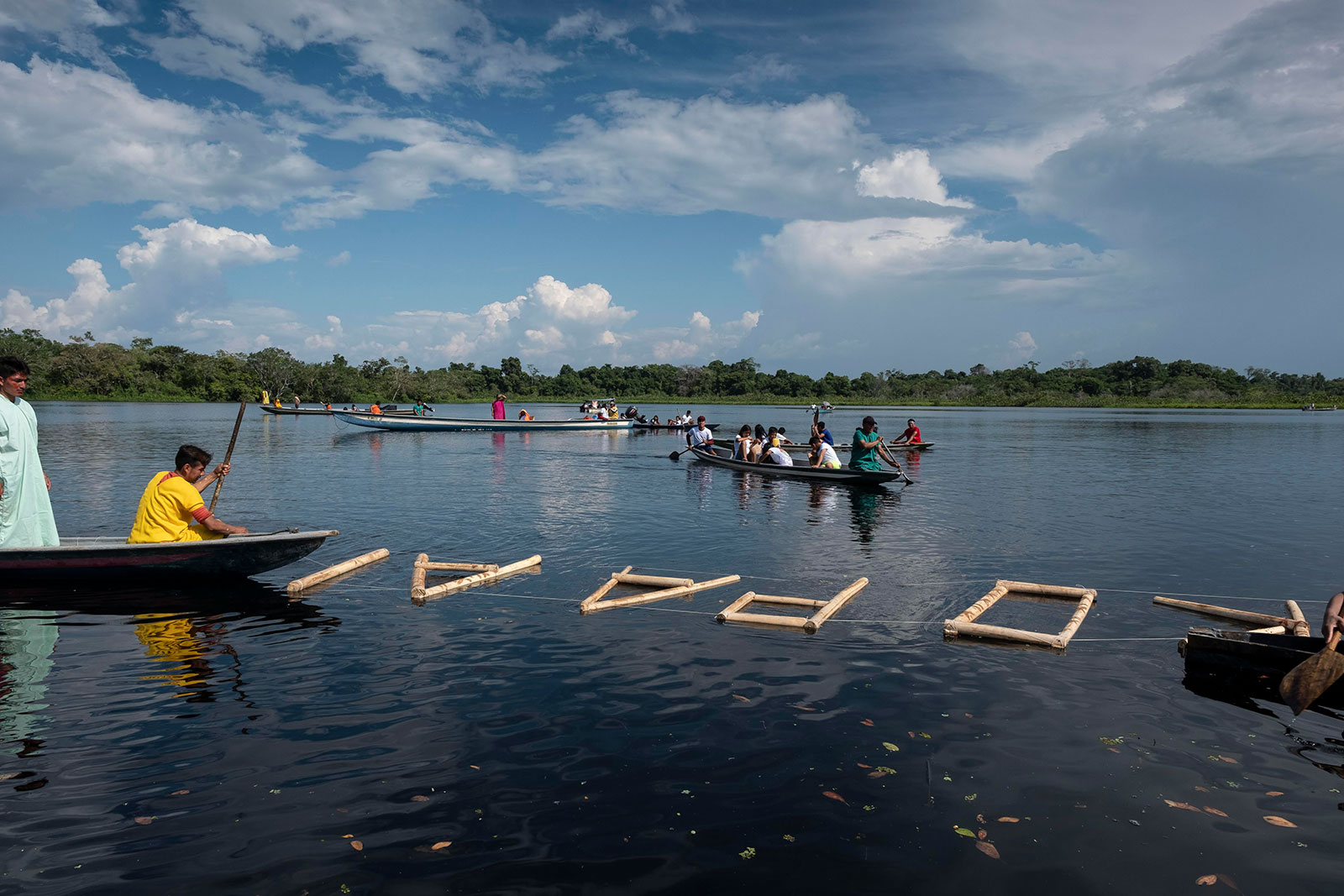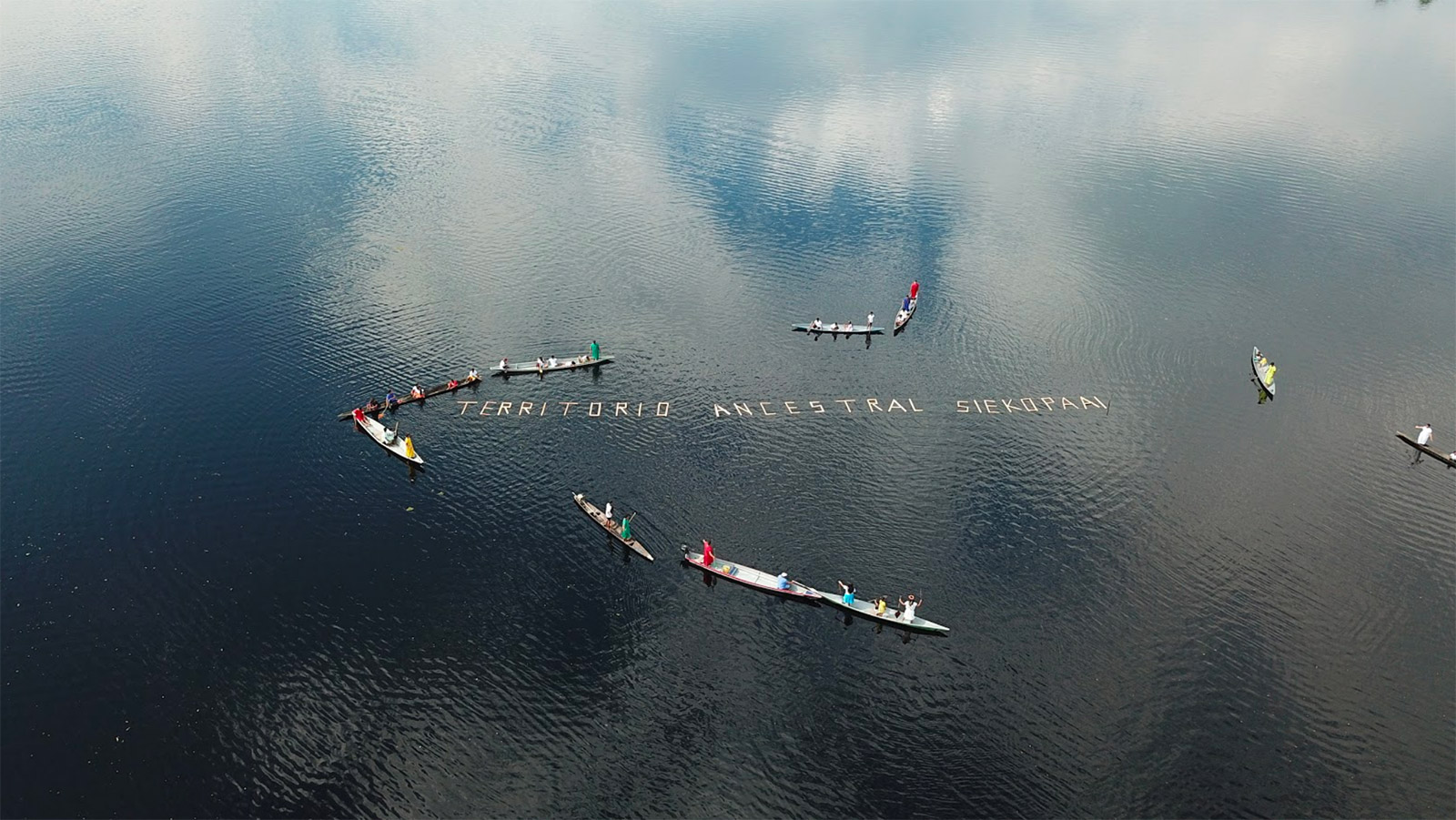In August of this year, over 50 women, men, elders and youth from the Siekopai (Secoya) nation of the Ecuadorian Amazon embarked on a historic five-day canoe journey and paddled 160 kilometers (100 miles) to the sacred lagoons of Ñakomasira, the heartland of their ancestral territory – Lagartococha – on the border between Peru and Ecuador.
In the following story, indigenous photographers Jimmy Piaguaje and Ribaldo Piaguaje from the Siekopai nation share moments and memories from their incredible journey within this mega-diverse labyrinth of blackwater lagoons, flooded forests and rolling hills. Their photos follow their trip, as they fished along the river, slept on the beaches, visited historic places, shared ceremony with their elders, and learned about the history and ancestral lands of their people.
Their journey marks an important step forward as part of the Siekopai’s struggle to reclaim sacred lands they were forcibly displaced from during a border-war in the 1940s between Peru and Ecuador, and the Siekopai’s attempts to return have all been derailed by a lack of formal land rights within what is now a national park. As they fight for Lagartococha, an area so critical to their physical and cultural livelihood that without it their existence is imminently threatened, the Siekopai hope to pave the way for other indigenous nations to do the same.
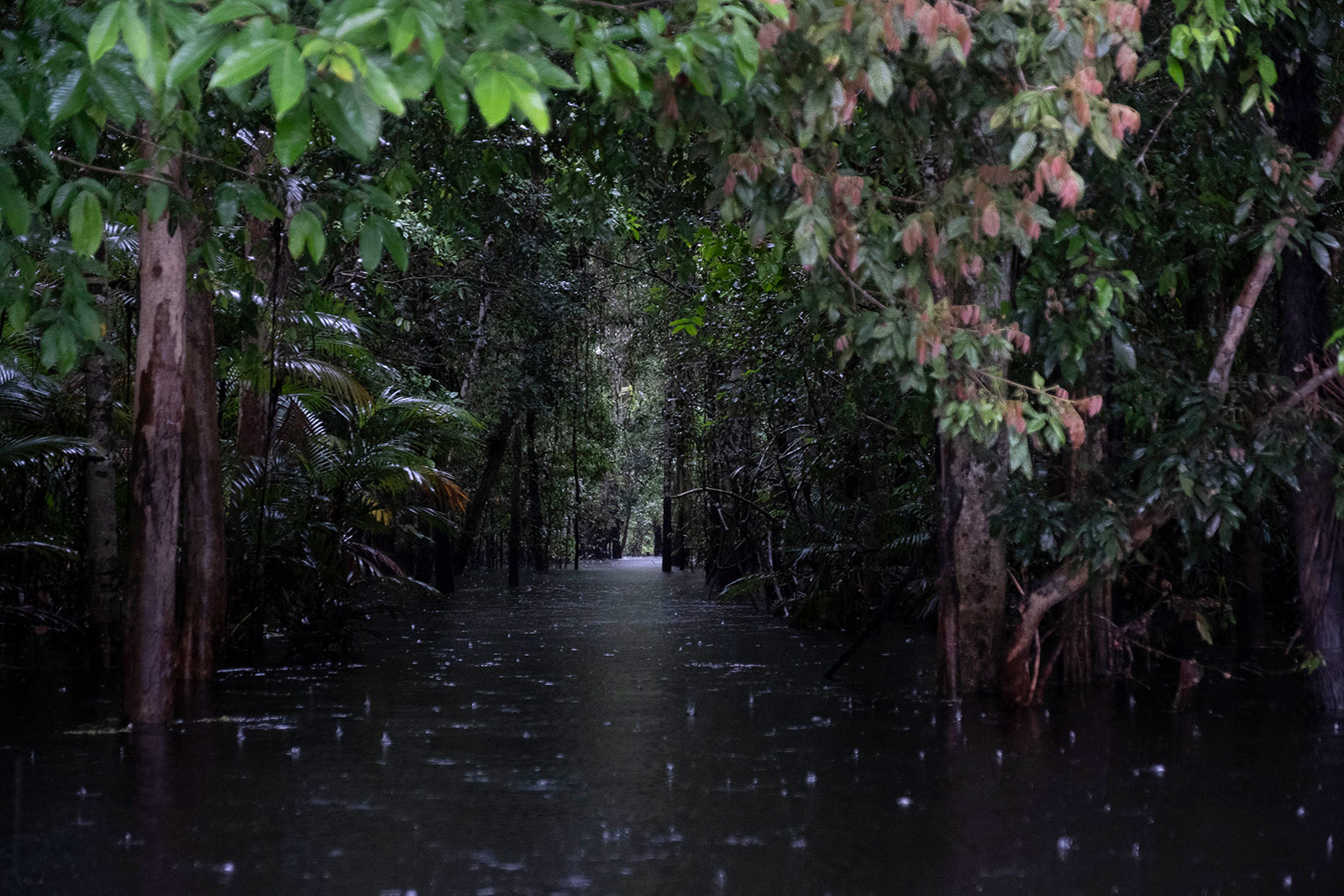
One of the many water corridors in Lagarto Cocha
The Lagarto River, named for the abundance of alligators within it, slithers and weaves through black water lagoons that reflect the forest, like a mirror hidden deep in the Amazon on the border between what are now the territories of Ecuador and Peru.
This territory is the spiritual center of our ancestors, it is the cradle of our yage (ayahuasca) drinkers and our connection with the aquatic world. Lagartococha is the spiritual origin of our people – the Siekopai, the Multi-Colored People.
From the time war broke out in 1941 between Peru and Ecuador, our people were forcibly displaced, and many of our families were separated. We were uprooted from our ancestral territory. Today, in Ecuador, we live in a small territory surrounded by oil companies, roads and the African palm industry, nearly 200 kilometers upriver from where our grandparents were born and raised.
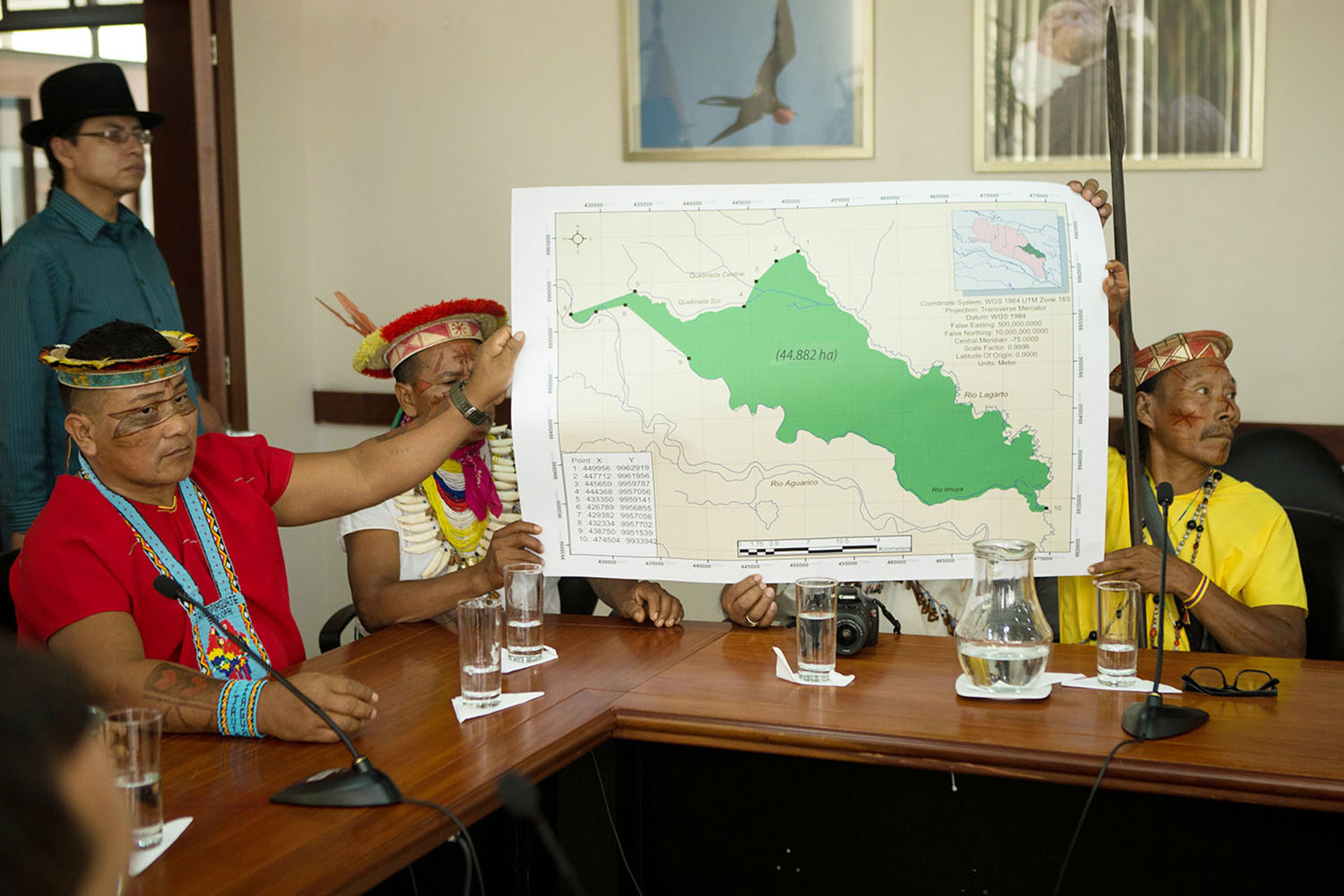
Siekopai show the map of their ancestral territory of Lagartococha during a meeting with Ecuador’s Ministry of Environment. The Siekopai have made a legal claim to title their land, 2017
RECLAIMING OUR SACRED LANDS
But we, Siekopai, have always kept the memory of Lagartococha alive. It is here that the bones of our ancestors rest. Our elders still recount the stories of our ancestors who navigated along the waters of Lagartococha. This is why we are fighting for the Ecuadorian government to recognize our right to our ancestral territory. For many generations, our people have been dreaming and fighting to recover their ancestral territory.
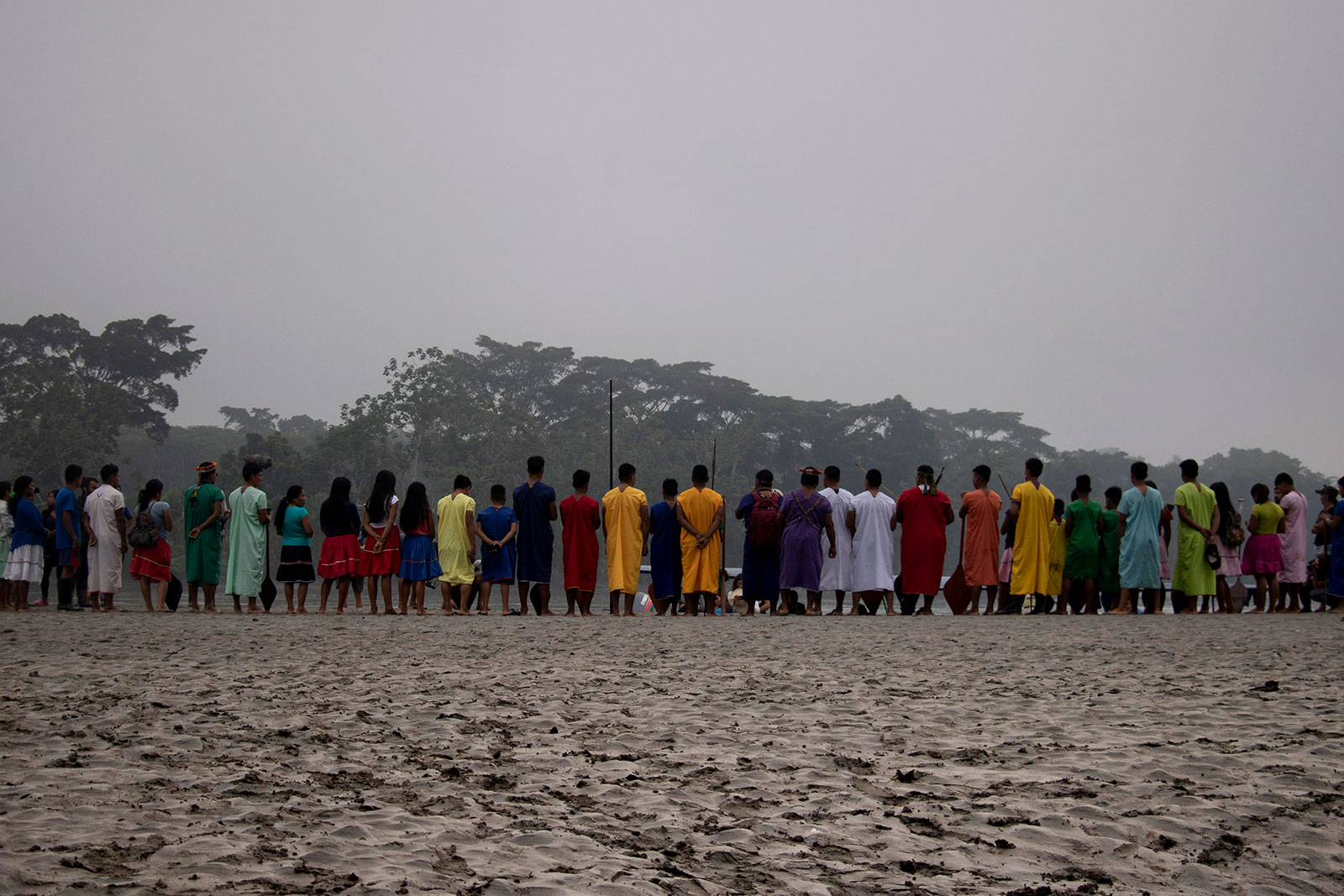
Our people on one of the beaches of the Aguarico river, preparing for the long canoe journey to Lagarto Cocha
Our people paddled in canoes down the Aguarico River, in the same way our ancestors did. Our journey to Lagartococha lasted 5 days
And so we began this journey in order to make our struggle visible to others. Our elders shared with us their stories, their legends and their knowledge about our ancestral territory, and in this way, the youth of our nation reconnected to the territory of our ancestors.
In preparation for the trip, young Siekopai paint their faces with traditional designs
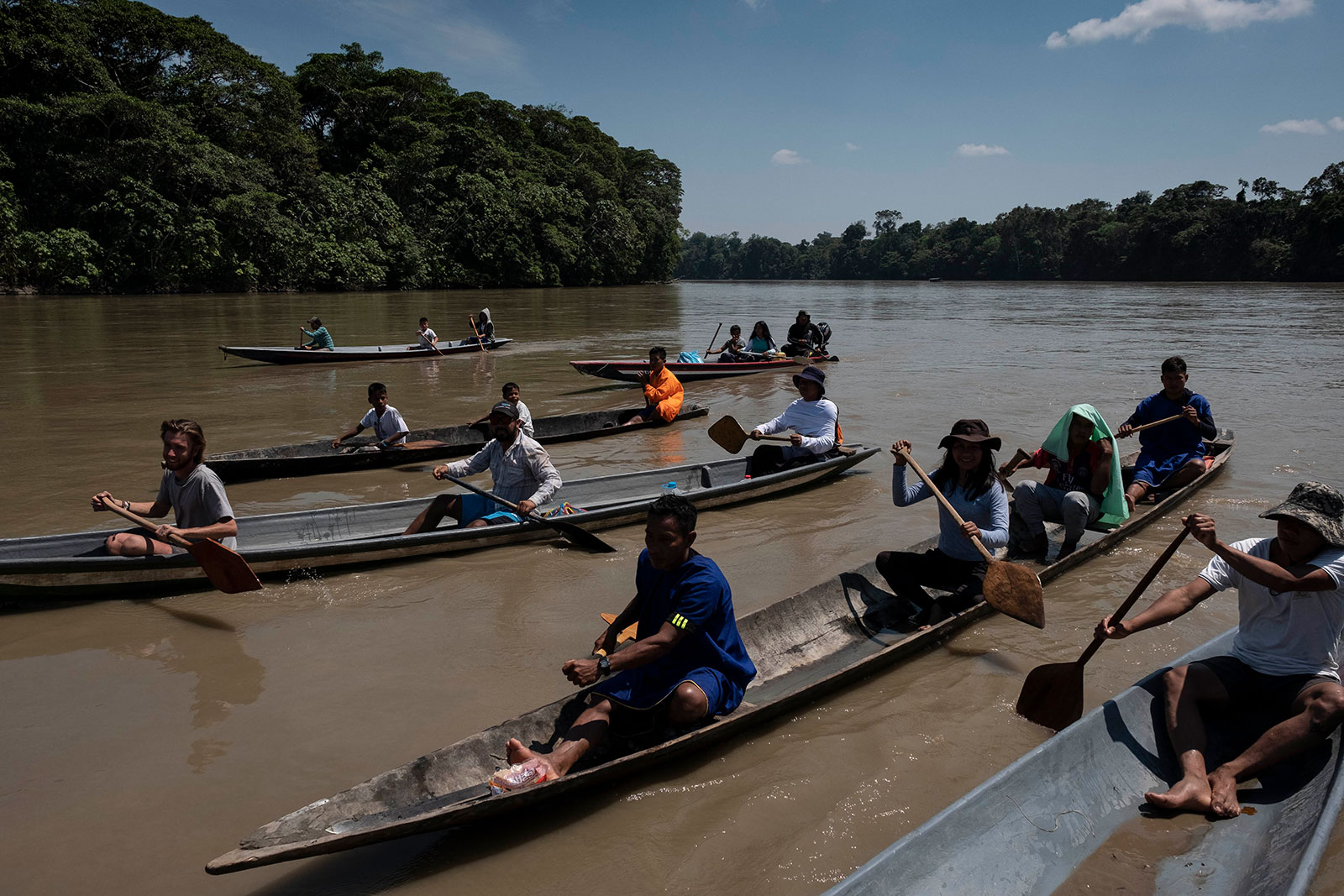
Canoe journey down the Aguarico River towards Lagartococha on the border between the Ecuadorian and Peruvian Amazon
Each day, our elders’ voices would wake us up in the early hours of the morning before dawn. They summoned us to drink yoko, a beverage made from the scrapings of a vine. Drinking yoko gave us energy, courage and strength, while we listened to the stories and advice of our elders for the days ahead.
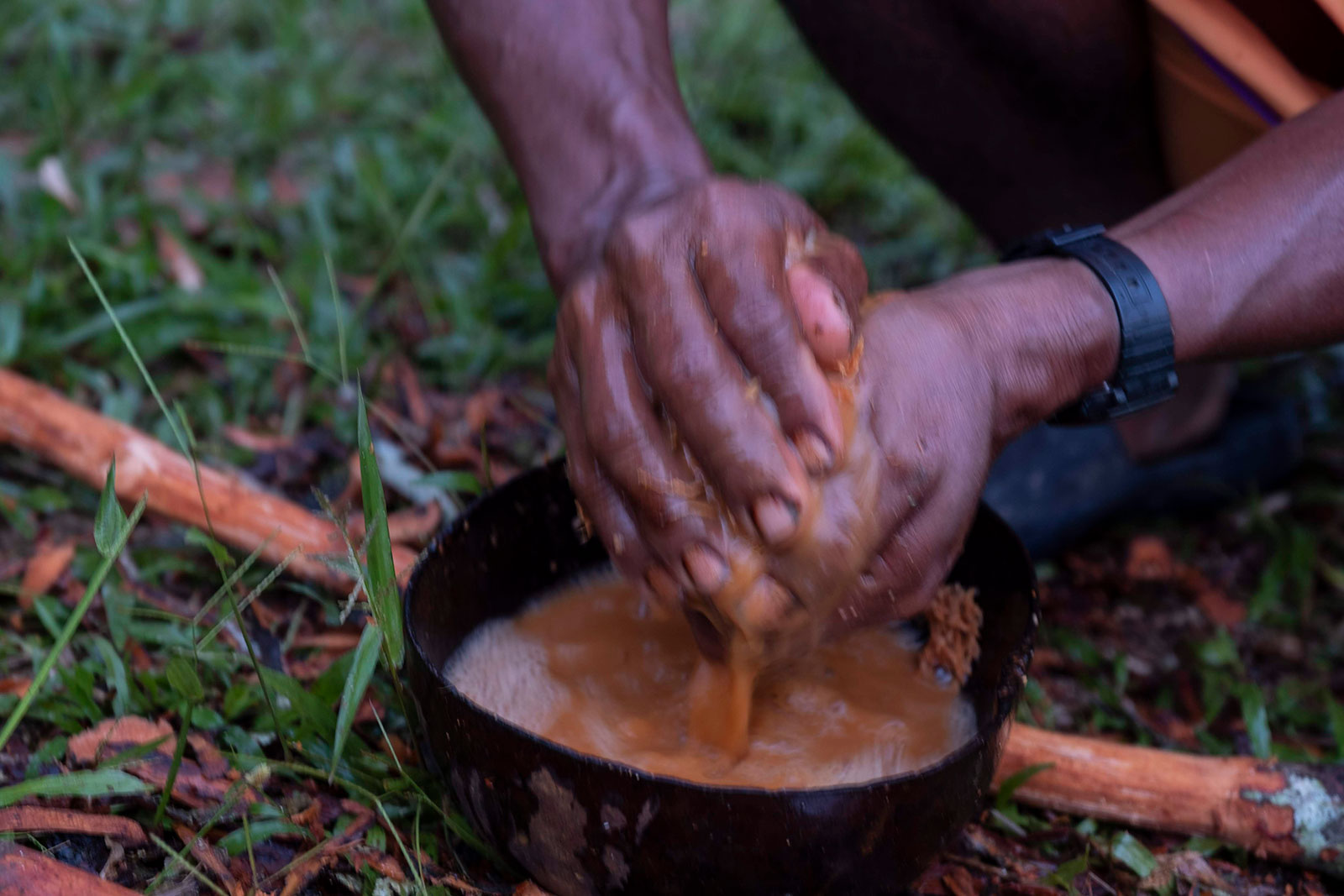
A grandfather squeezing the juice of the yoko, an energy drink that comes from a vine
Lagartococha is a magical place. It is full of life. The forest is thick and it is home to a great diversity of animals. For us, Lagartococha is not only a place of great spiritual importance, it also provides us with our subsistence. The forest gives us fruits and many medicinal plants, and the river abounds with fish to feed our families.
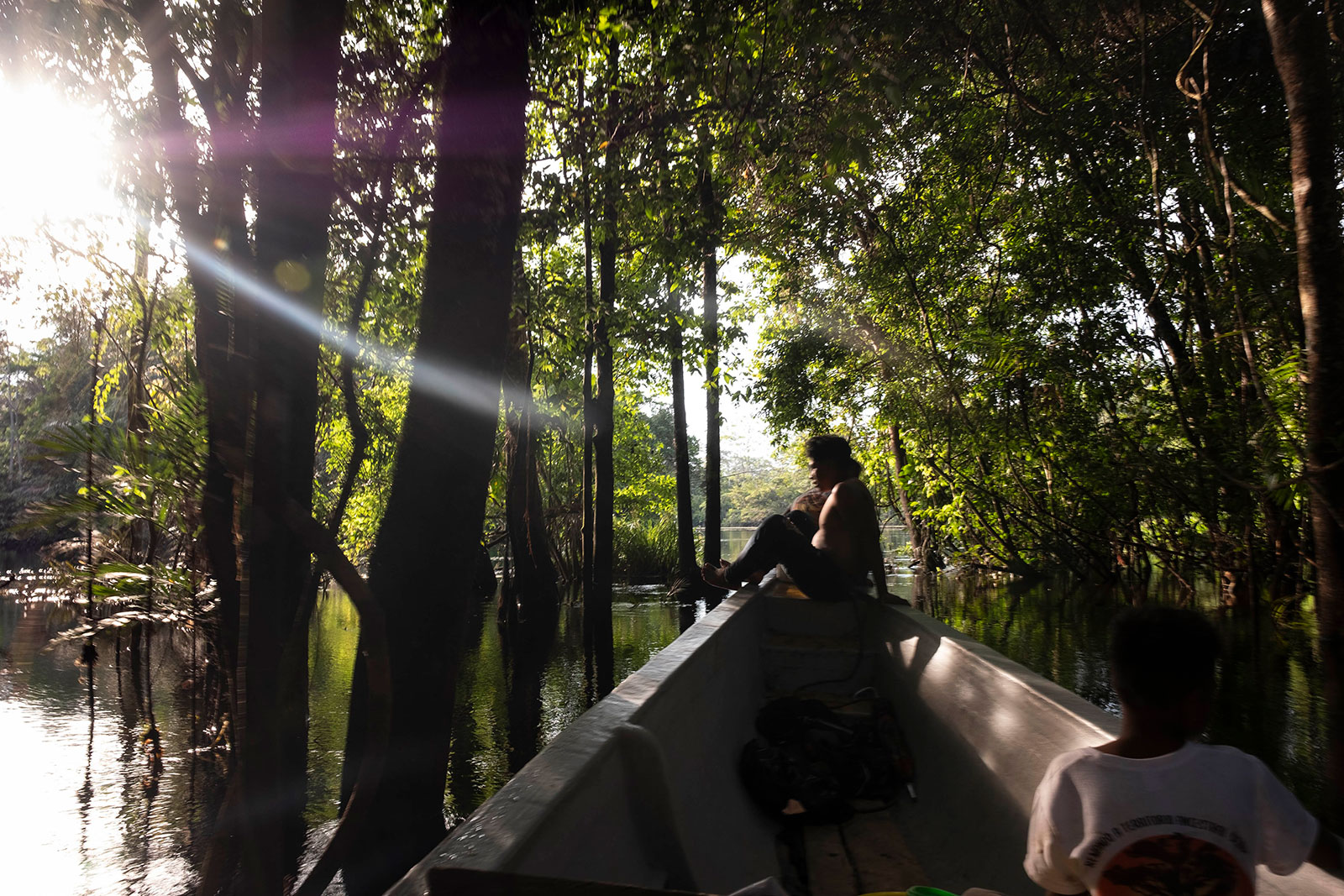
Canoe on the Lagarto River
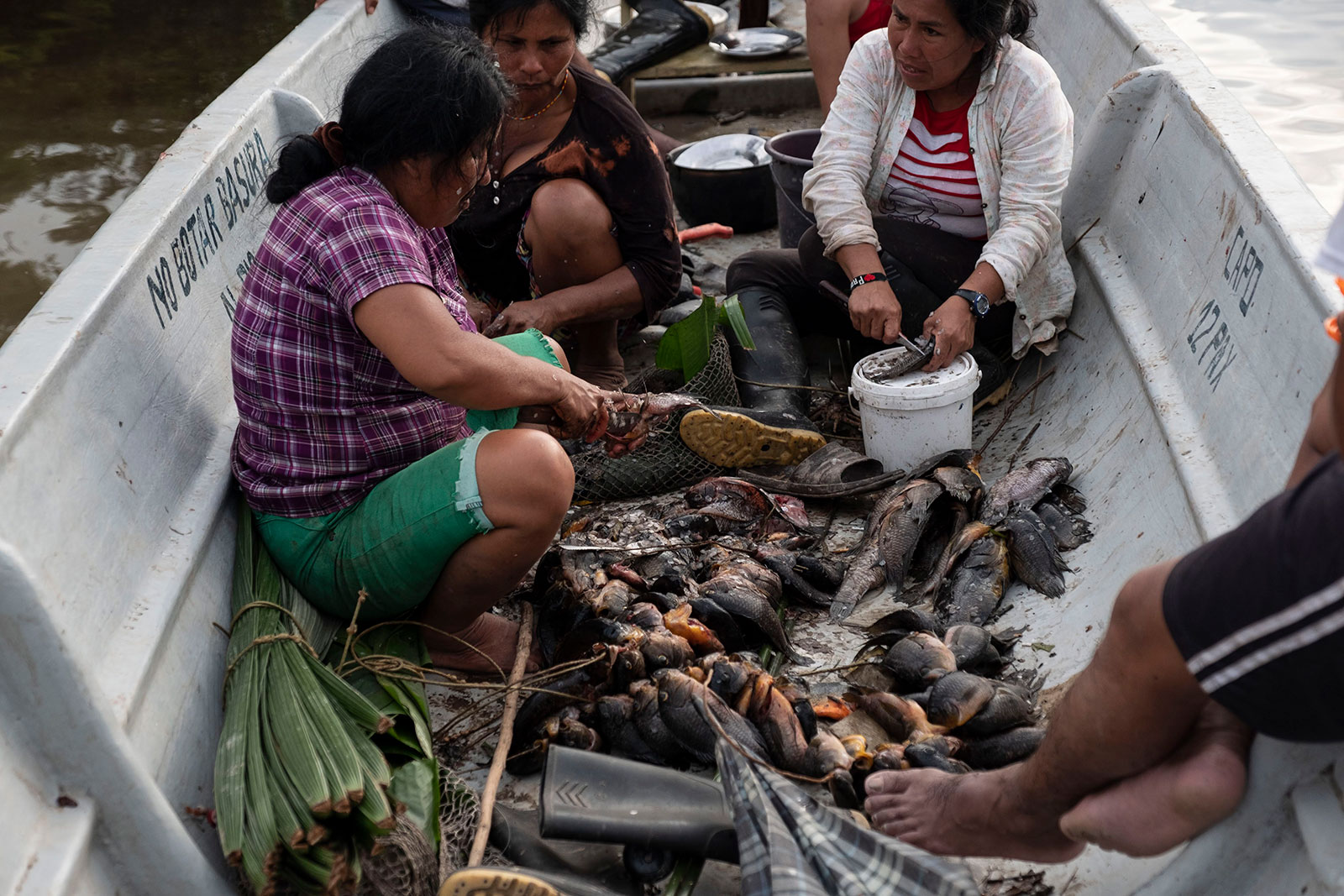
Scenes of everyday life on the Lagarto river. A family prepares fish to be smoked
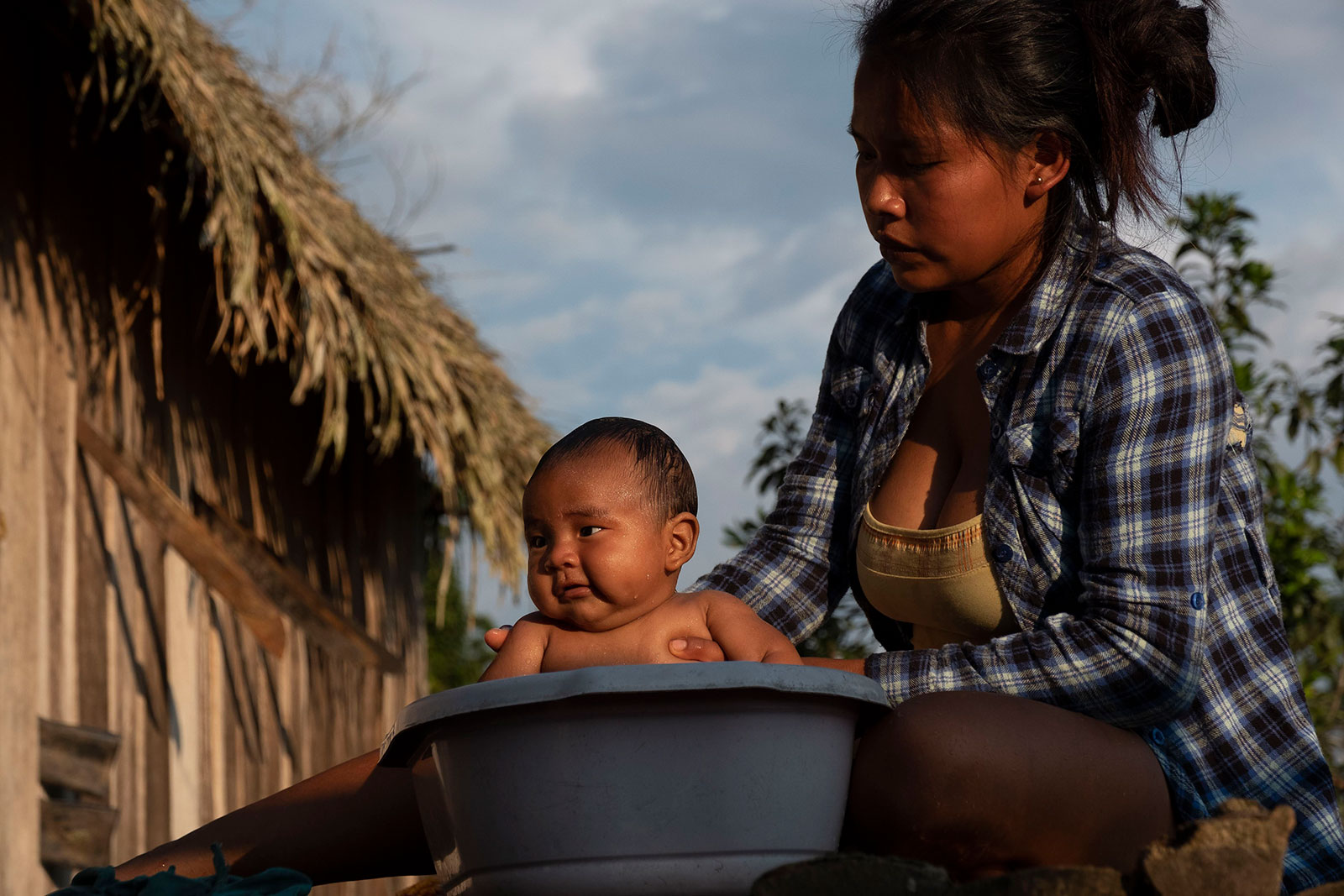
A mother bathes her baby in the community of Mañoco, on the banks of the Lagarto River on the Peruvian side
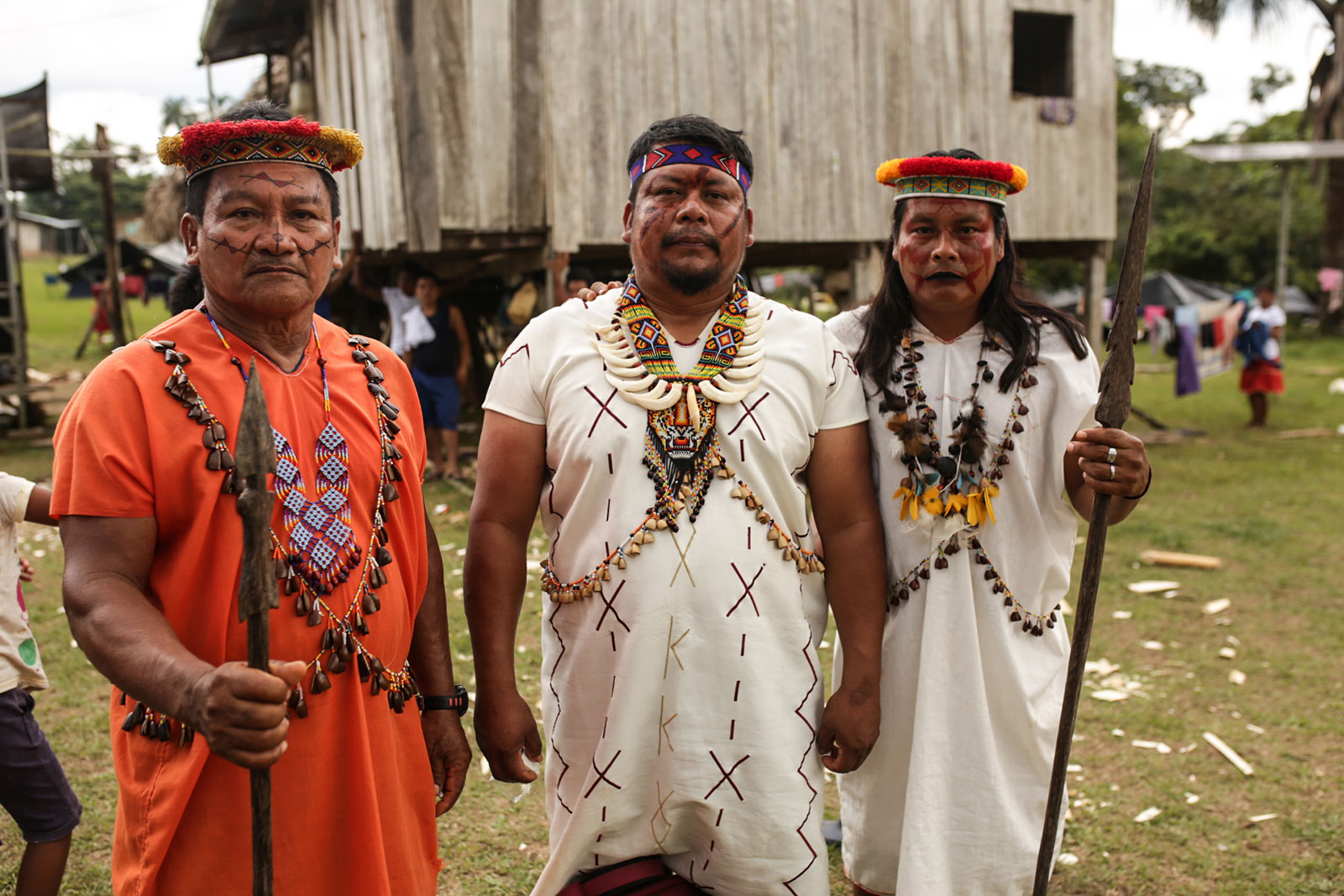
Young people enjoy a swim in the river alongside the community of Mañoco
For many children and young people, this journey marked their first visit to Lagartococha. It was a very special experience, and we felt a lot of happiness when some of our families were reunited with their relatives on the Peruvian side of our ancestral territory.
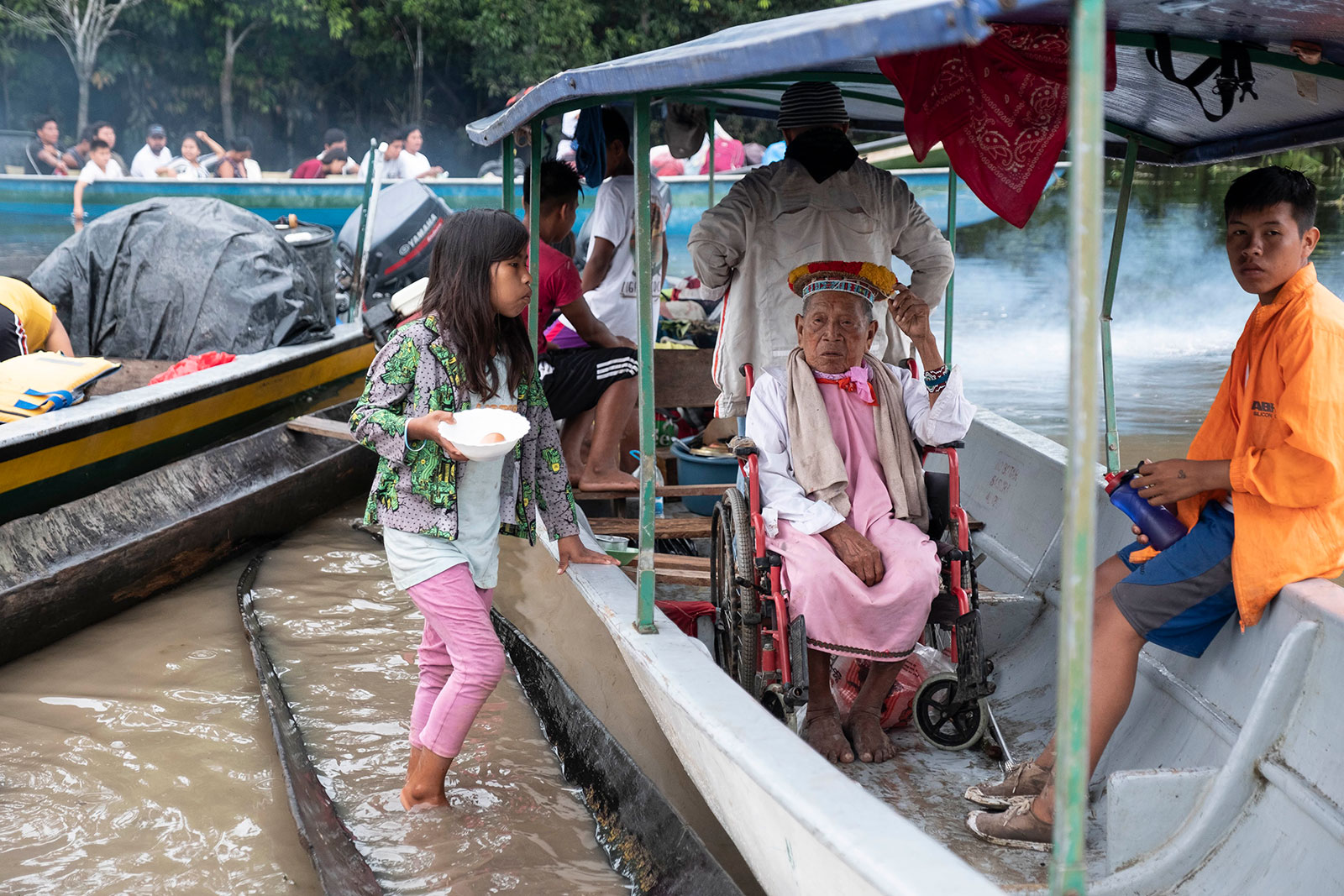
Cesario, a wise and legendary Siekopai shaman who was born in Lagartococha awaits departure for the journey to visit the emblematic Ñakomasira lagoon
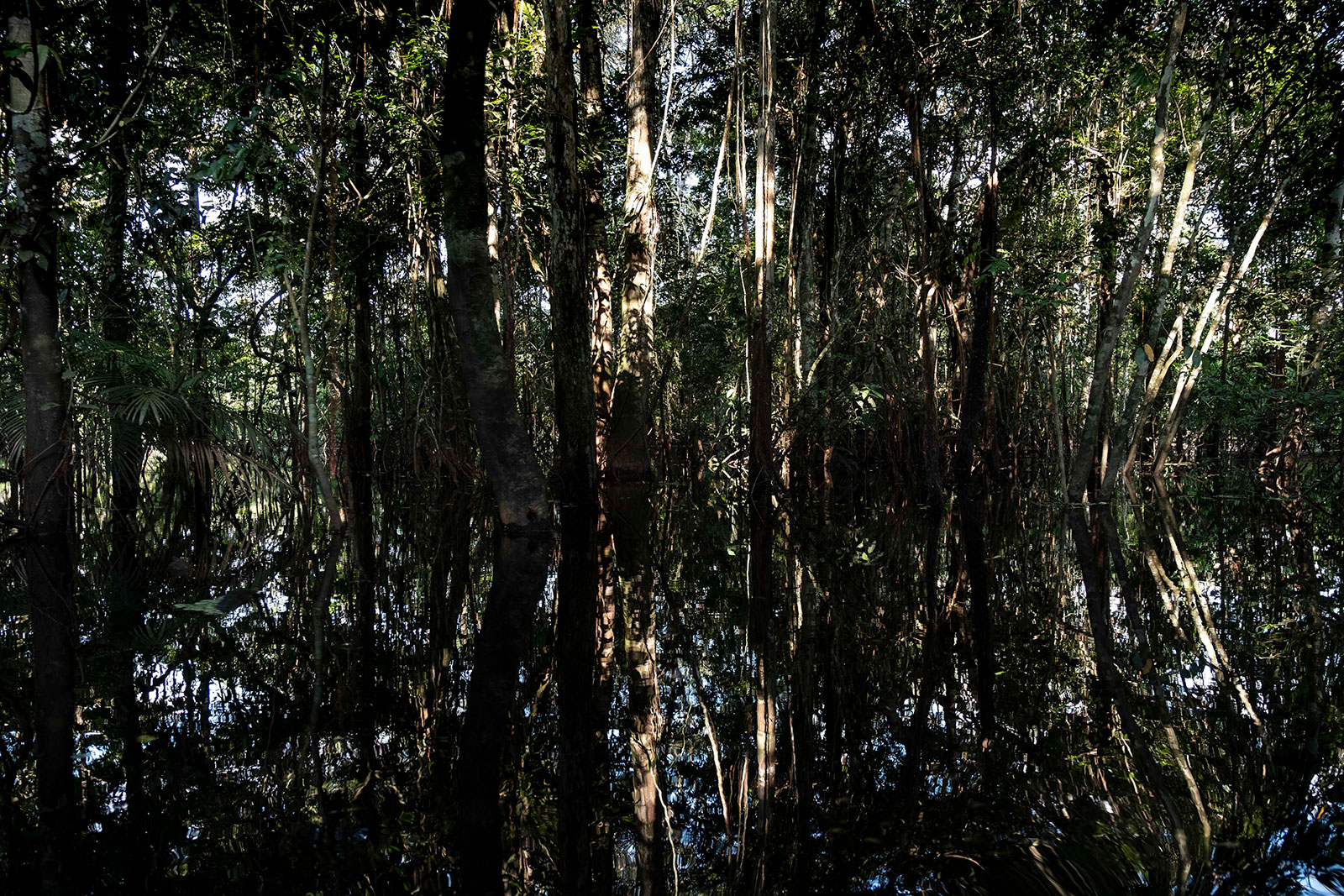
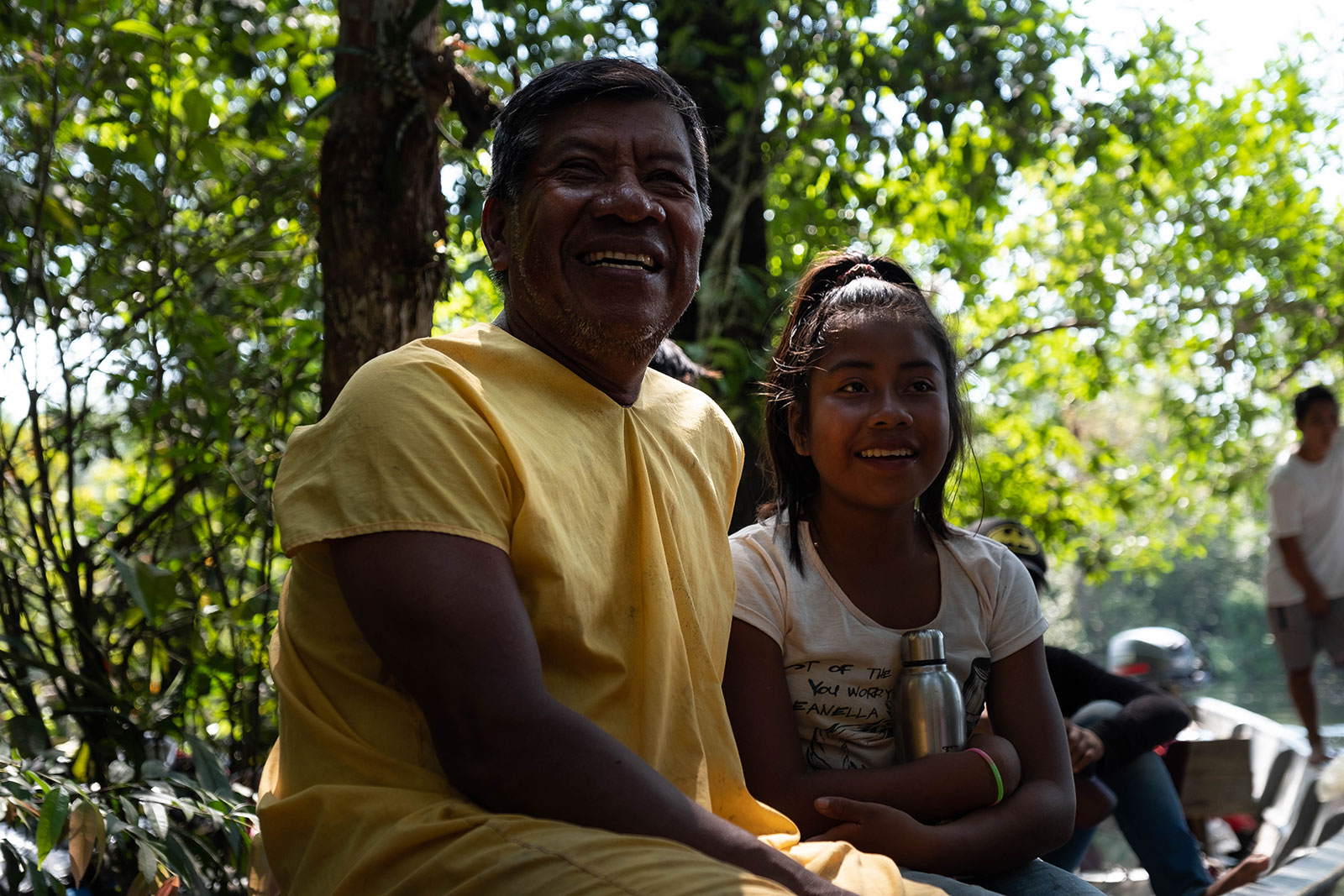
Colón Piaguaje with his daughter
After five days of sharing stories and visiting ancient village sites, burial grounds, and sites of ceremonial lodges while listening to the experiences of our parents and elders, we arrived to the legendary and sacred Ñakomasira (Wounded Eye) lagoon, which is home to several beings and spirits of the aquatic world.
Writings in the river with rafts in the waters of the Ñakomasida lagoon
Our canoe journey to Lagartococha will be forever engraved in the memory of our nation’s young generations. These are important steps to recover our memory as a people, and to unite ourselves in order to ensure that the legacy of our ancestors can continue to be passed down from generation to generation. We want to maintain our spiritual connection with the place of our origins. As young people, we will continue this struggle to recover our roots, so that the future generations do not forget and understand what it means to be truly Siekopai.
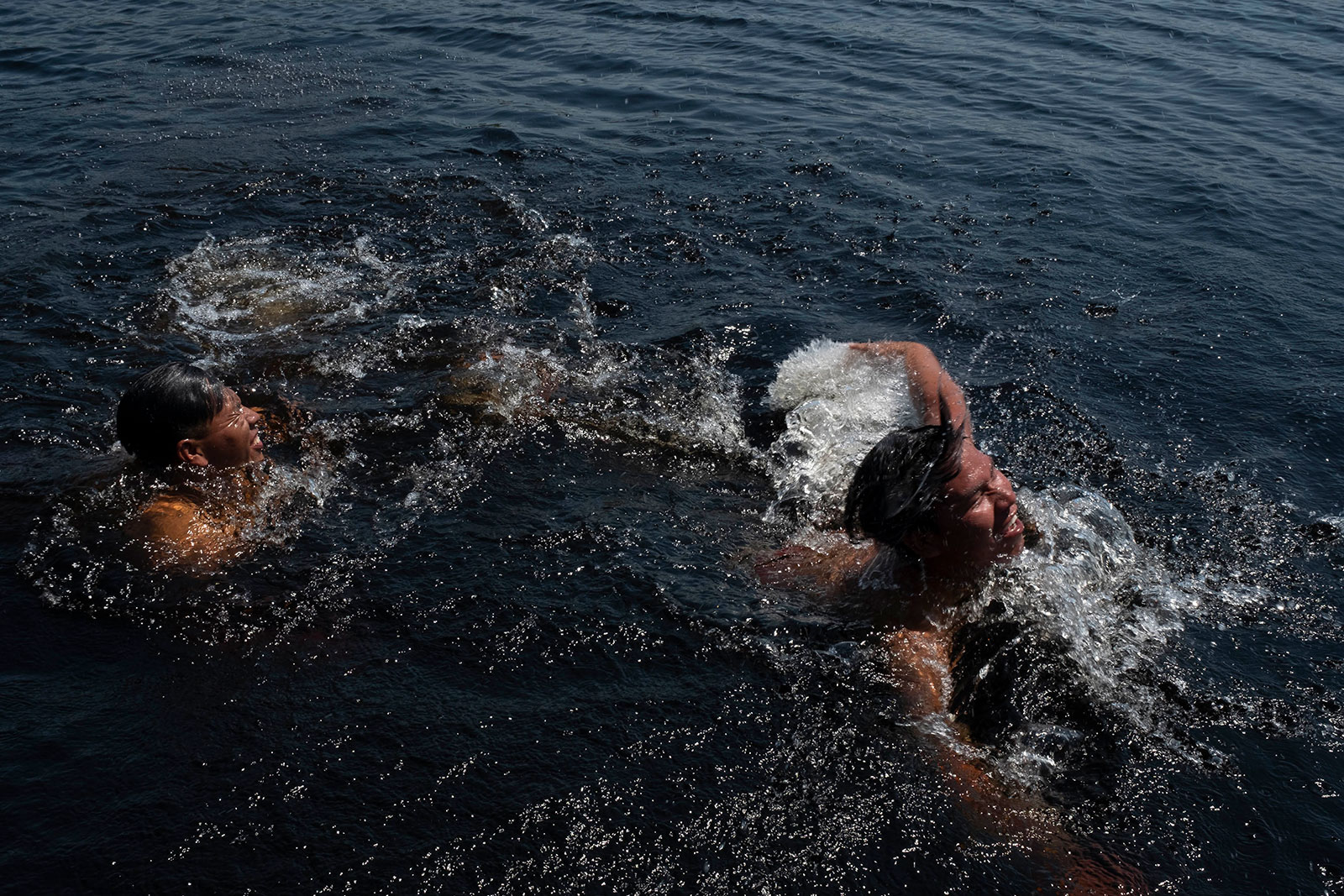
Jimmy and Ribaldo in a lagoon in Lagartococha during the trip

